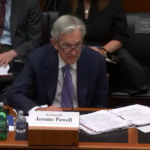Sen. Tim Scott is leading an effort in to increase private investment in affordable housing and other community development projects across the country. The Community Investment and Prosperity Act increases a statutory cap limiting banks’ investments in community development projects, which will unlock billions in capital for affordable housing, small businesses, financial education, and other economic development needs in communities that need it the most.
“Our regulatory framework should encourage investment in affordable housing and community development projects in communities that need it most, but outdated laws are restricting financial institutions from engaging in these important activities,” said Sen. Scott. “For the first time since 2006, this bill makes commonsense changes to unlock capital and increase investment opportunities that will boost our housing supply, expand financial inclusion, and support small businesses while ensuring the safety of our banking system.”
The National Bank Act and Federal Reserve Act provide that, in general, a bank may not make certain equity investments that, taken together, exceed 5% of its capital and surplus.
The statutes permit the Office of the Comptroller of the Currency (OCC) and the Federal Reserve to increase the limit for an individual bank to 15% of the regulator determines that a “public welfare investment,” as permitted by law, will pose no significant risk to the Deposit Insurance Fund, and the bank meets certain other criteria. These investments by eligible banks support activities including affordable housing, small businesses, technical assistance, financial literacy, and other development needs in communities that need it the most.
“Access to capital for small businesses, affordable housing projects, and other community development projects is absolutely critical to the prosperity of communities in South Carolina and nationwide,” said Fred L. Green III, President and CEO of South Carolina Bankers Association. “The South Carolina Bankers Association fully supports Sen. Tim Scott’s Community and Investment and Prosperity Act that allows banks to access more of their capital to invest in these projects. We are excited he is taking the initiative to pass legislation that helps banks address these needs.”
KeyBank, the Bank Policy Institute, the Affordable Housing Tax Credit Coalition, and the National Association of Affordable Housing Lenders have all endorsed the legislation.
The last time Congress raised the cap on “public welfare investments” was in 2006 as part of the Financial Services Regulatory Relief Act of 2006, which raised the discretionary cap from 10% to its current level of 15%. The Community Investment and Prosperity Act raises the cap on “public welfare investments” for banks from 15% to 20%, which will open up billions of dollars of available capital for investment in affordable housing and community development projects across the country.
Click here for more on Sen. Tim Scott’s Community and Investment and Prosperity Act.





